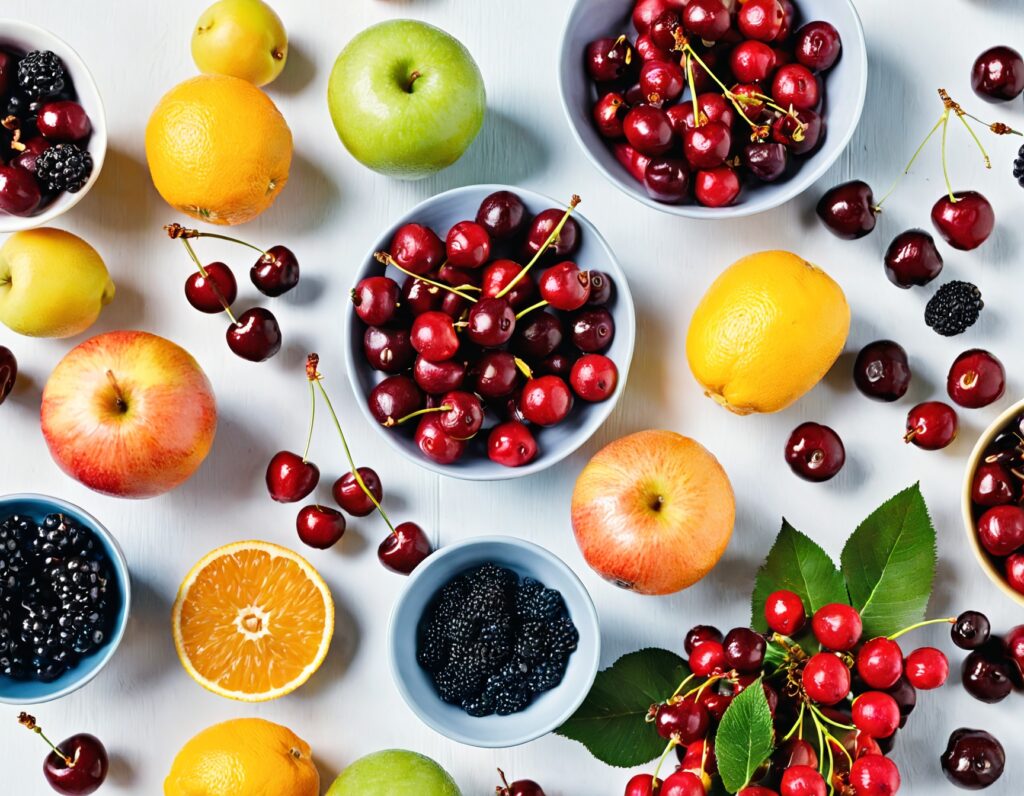Best Fruit for Insulin Resistance: Dietitian Advice
Managing insulin resistance can be challenging, but one of the least complicated ways to start is by adjusting your diet. When it comes to fruit, you may be wondering which options are best for keeping your blood sugar levels in check. In this article, we delve into the world of fruits that can help manage insulin resistance, guided by professional dietary advice.
Understanding Insulin Resistance
To make informed food choices, it is essential to understand what insulin resistance entails. This condition occurs when the body’s cells become less responsive to the hormone insulin, which regulates blood sugar levels. As a result, your body requires more insulin to help glucose enter cells, often leading to elevated blood sugar levels.
Over time, this can lead to conditions like type 2 diabetes, metabolic syndrome, and increased risk for cardiovascular disease. Incorporating specific fruits into your diet can help mitigate some of these risks.
Best Fruits for Insulin Resistance
Certain fruits can play a crucial role in managing insulin resistance due to their low glycemic index (GI), fiber content, and antioxidative properties. Choosing the right fruits can help keep your blood sugar levels stable and improve your overall health. Below are some top fruit choices backed by dietitian advice:
Berries
Berries, such as strawberries, blueberries, and raspberries, are excellent for individuals with insulin resistance. They are rich in fiber, vitamins, and antioxidants, making them a nutritious option.
- Low Glycemic Index: Most berries have a low GI, which means they cause a slower, more gradual rise in blood sugar levels.
- High Fiber Content: The fiber in berries helps regulate blood sugar by slowing the rate at which sugar is absorbed into the bloodstream.
- Antioxidants: Berries contain antioxidants like anthocyanins, which have anti-inflammatory properties and improve insulin sensitivity.
Citrus Fruits
Citrus fruits, including oranges, grapefruits, and lemons, are also beneficial for those managing insulin resistance.
- Rich in Fiber: Citrus fruits offer soluble fiber, such as pectin, which can slow down digestion and control blood sugar spikes.
- Vitamin C and Flavonoids: These fruits are packed with vitamin C and flavonoids that can enhance immune function and reduce inflammation.
- Hydration: With high water content, citrus fruits help with overall hydration, supporting metabolic functions.
Cherries
Cherries, particularly tart cherries, have received acclaim for their potential benefits for insulin resistance.
- Low Glycemic Impact: Cherries have a moderate GI but are high in fiber, which helps manage blood sugar levels effectively.
- Anthocyanins: Like berries, cherries are rich in anthocyanins, contributing to better insulin sensitivity and reduced inflammation.
- Anti-inflammatory Properties: These properties can assist in reducing the chronic inflammation often associated with insulin resistance.
Apples
An apple a day might indeed help keep the doctor away, especially for those dealing with insulin resistance.
- Soluble Fiber: Apples contain a good amount of pectin, a soluble fiber that aids in blood sugar regulation.
- Polyphenols: These compounds can improve insulin sensitivity and support overall metabolic health.
- Hydrating and Filling: The high water content and fiber make apples a satisfying snack that helps control hunger without causing blood sugar spikes.

Tips for Incorporating Fruit into a Diet for Insulin Resistance
Living with insulin resistance doesn’t mean you have to give up fruits entirely. Below are some tips to help you incorporate these nutritious options into your diet effectively:
- Choose Whole Fruits Over Juice: Whole fruits contain fiber that slows down sugar absorption, unlike fruit juices that can cause a rapid increase in blood sugar levels.
- Pay Attention to Portion Sizes: Moderation is key. Stick to recommended serving sizes to keep blood sugar levels stable.
- Pair Fruits with Protein or Fat: Consuming fruit with a source of protein or healthy fat can help moderate blood sugar responses.
- Monitor Your Blood Sugar: Keep track of how different fruits affect your blood sugar levels and adjust your intake accordingly.
Conclusion
When managing insulin resistance, it’s crucial to be mindful of what you eat, including your fruit choices. Berries, citrus fruits, cherries, and apples can all be beneficial due to their low glycemic index, high fiber content, and antioxidative properties. Incorporating these fruits into your diet in a balanced way can help you manage your condition effectively.
Consult with a dietitian to create a personalized eating plan that suits your health needs. Remember, managing insulin resistance is a holistic process that includes dietary adjustments, regular exercise, and possibly medication. Small, consistent changes can lead to big health improvements over time.
“`

Comments are closed.